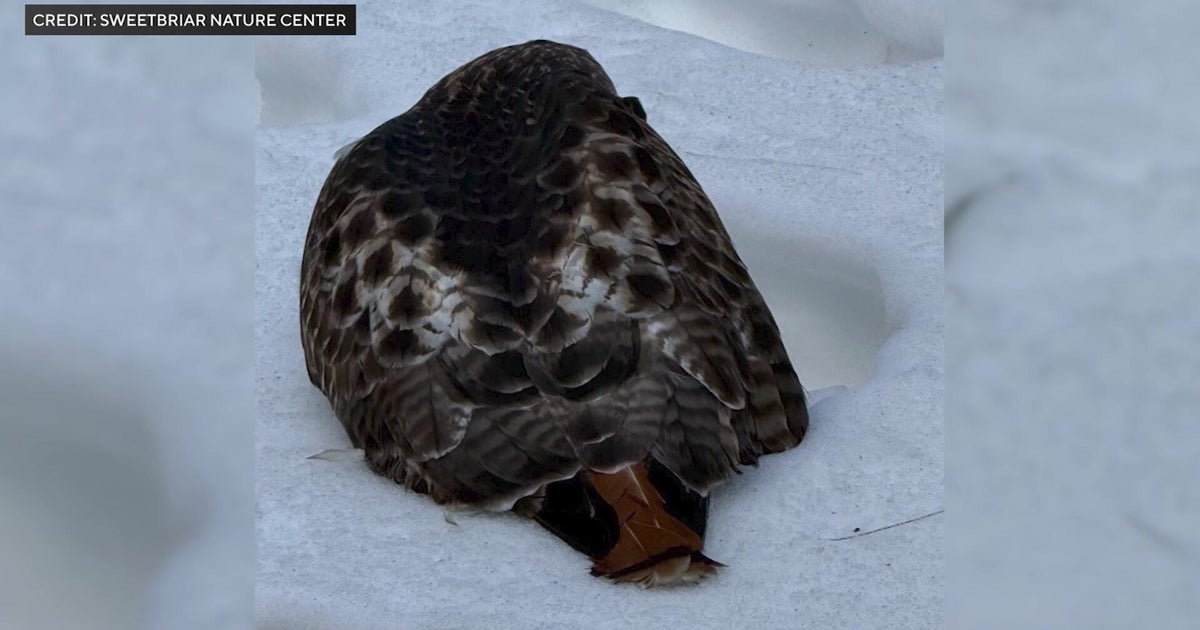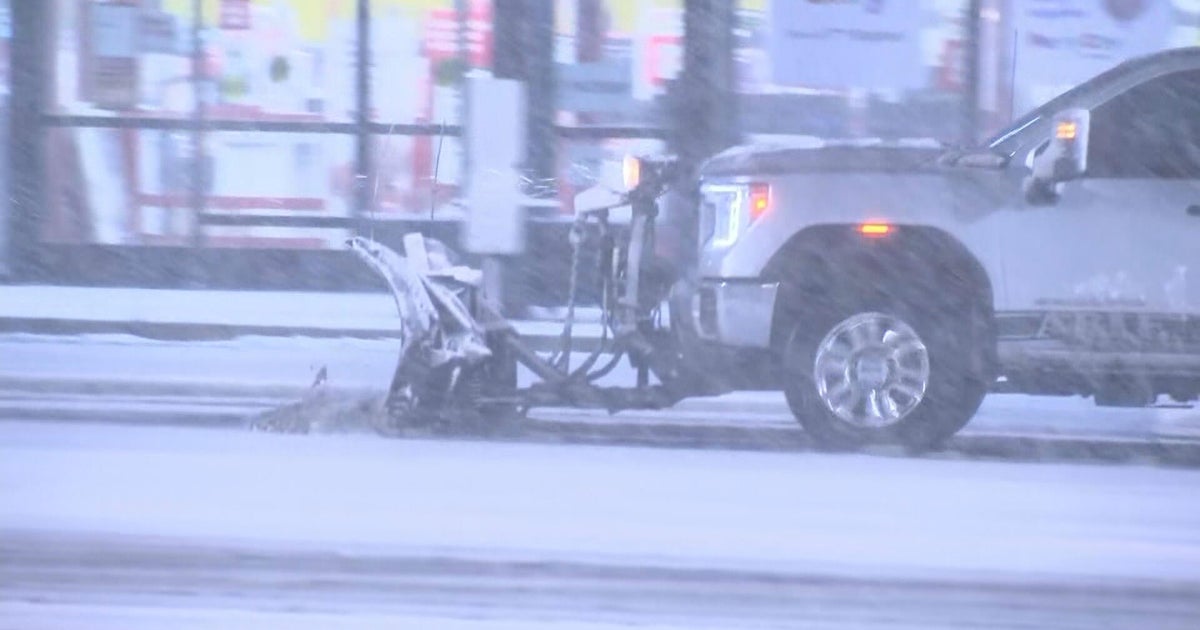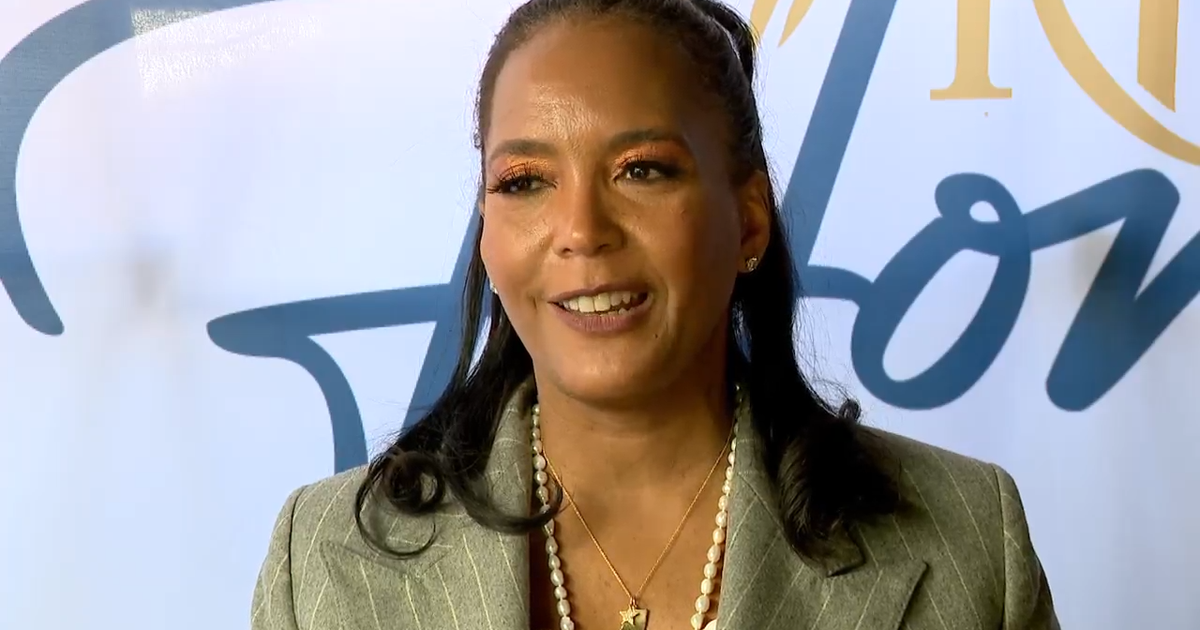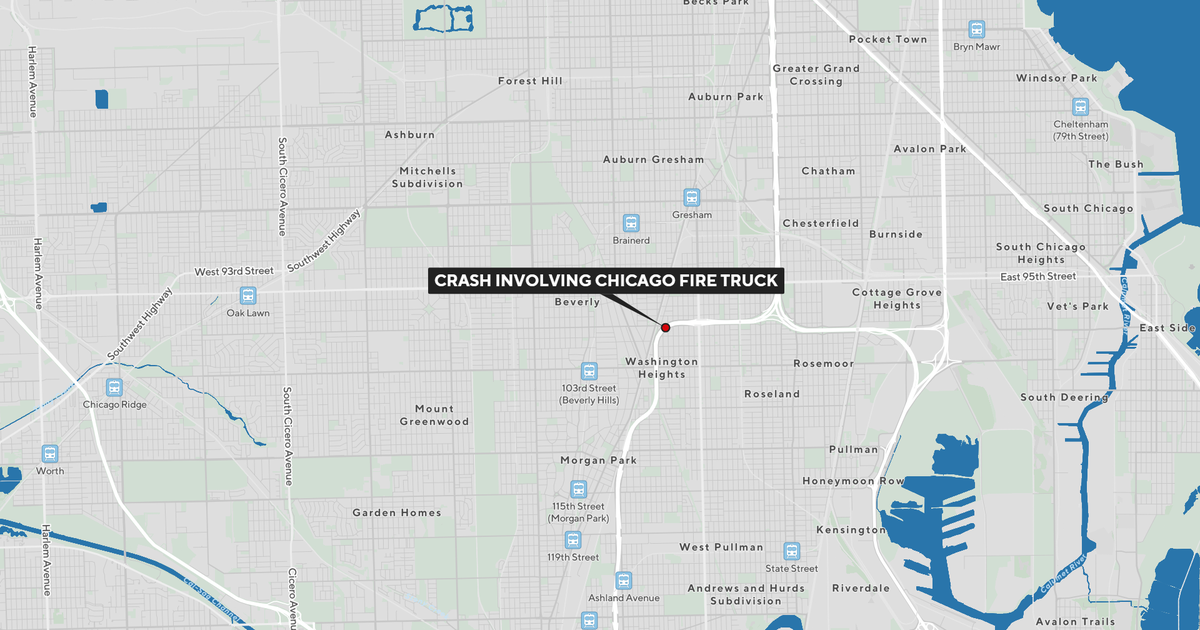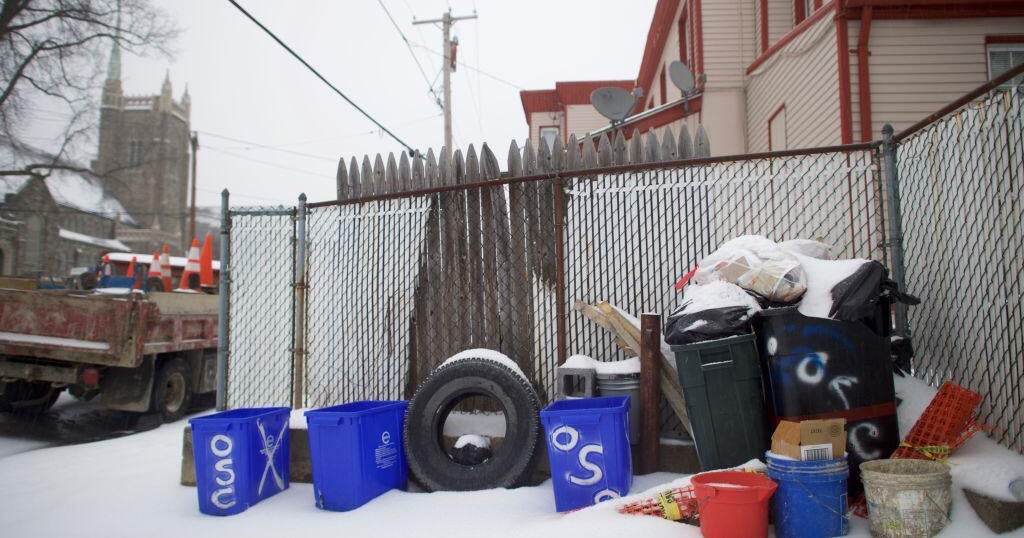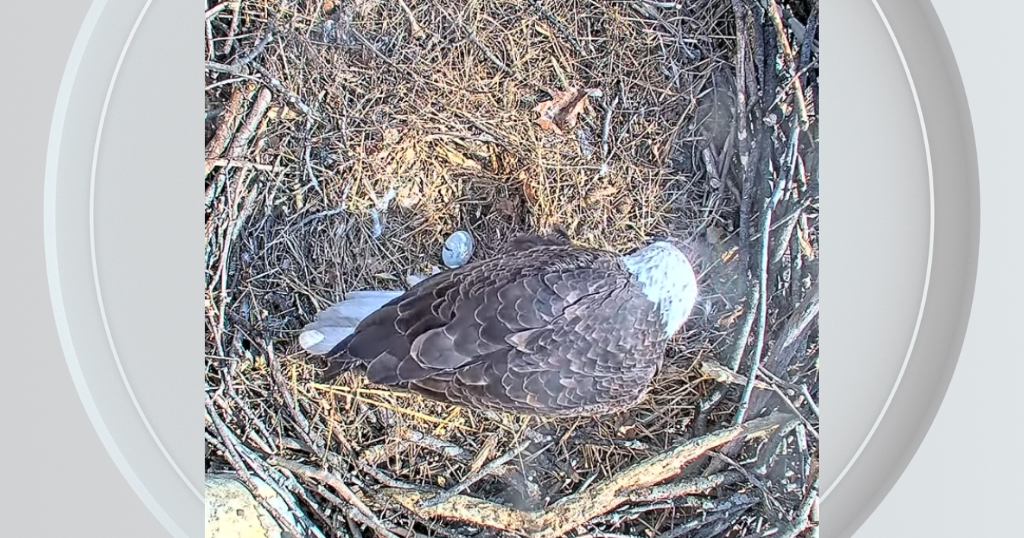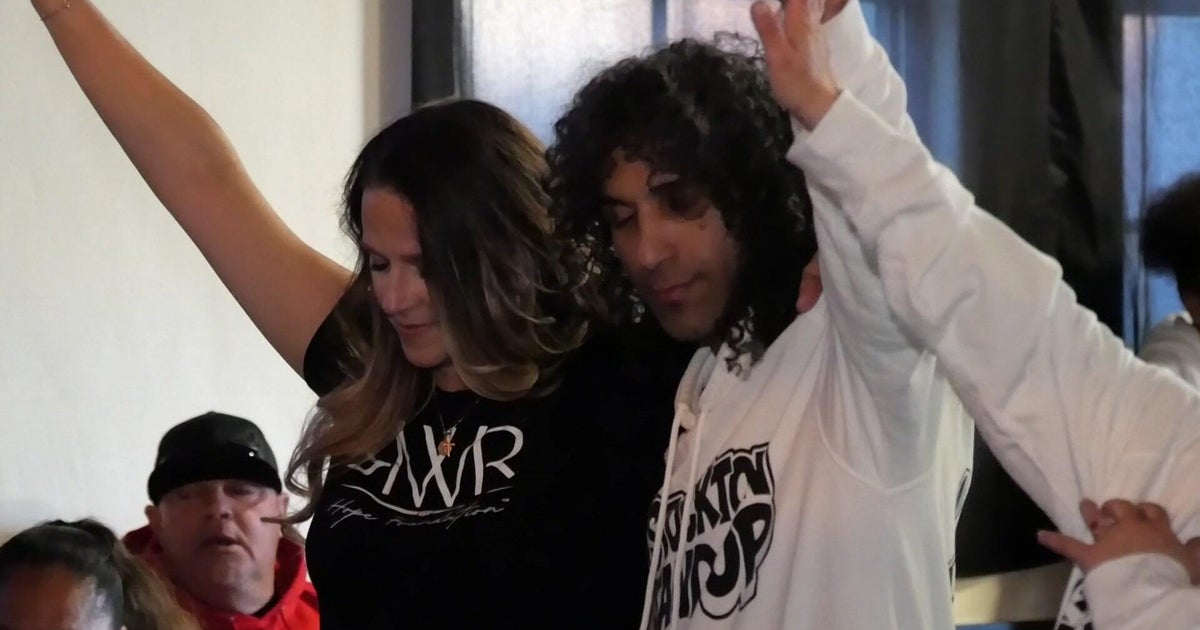Franklin Institute Red-Tailed Hawk On The Mend
By Molly Daly
PHILADELPHIA (CBS) -- Nearly two weeks ago, the lone surviving fledgling from the Franklin Institute Red-tailed Hawk nest was found injured on the Ben Franklin Parkway and taken to the Schuylkill Wildlife Rehabilitation Clinic in Upper Roxborough. The young raptor appears to be on the mend.
Fans call him Peanut, the last to hatch and smallest of the three, but the first to leave the nest. Clinic Director Rick Schubert says it's not clear how the bird was injured.
"It's a very high likelihood that he was hit by a car or rolled by a car," he says. "The animals can't talk to us; you have to use detective skills to find out what happened to it, and what's wrong with it."
It's a step-by-step process, says Schubert. "So first, we give the animal a very thorough examination, trying to find any kind of injuries. Then we give it supportive care -- we give it anti-inflammatory meds, we give it some fluid therapy. Then," Schubert says, "we call our vet, and the vet gives it a further exam, and gives it an x-ray to look for fractures. And then it's supportive care for a couple of weeks, and close observation, as well as nutritional supplementation."
Schubert says Peanut couldn't use his legs at first, but now, he's sitting on a perch.
"He's getting a lot better. I'm still cautiously optimistic, but the animal's a lot better than it was last week."
There's one big sign of improvement -- the bird is loudly demanding food.
"He's eating very well now. Originally, he was not eating, but now he's eating on his own. He's crying for food if he doesn't get fed fast enough."
Peanut's meals come from the rodent aisle of the wildlife grocery store.
"We buy frozen mice from a place that breeds them -- they're feeder mice. Fortunately for us, red-tailed hawks will eat dead mice."
The bird's also looking feisty, sitting upright with feathers fluffed and hackles raised -- and shrieking -- when a human approaches his cage.
"There's one thing I've learned about animals is that every animal is an individual. This particular hawk is very, very vocal. Some are, some aren't."
It's not clear how long Peanut's recovery will take, or when or if he'll be released. "It's too soon to tell," says Schubert. "The bird was really iffy just a few days ago, so, we'll just have to take it day by day. If everything goes right, best case scenario -- in a few weeks."
In that event, Schubert says it's not likely the young hawk will be returned to the Parkway.
"I probably would not release him back into Center City, because if he got in trouble there in the first place, he's likely to get in trouble there again. So I'd probably find a little bit of a better habitat for him than the Ben Franklin Parkway."
Although Peanut's fans are closely following his progress, he's just one of a number of patients in the wildlife hospital's care.
"It's interesting, because to me, it's another patient that needs our help, and we give the same amount of care to all our patients. So we realize this is a special hawk that a lot of people have an emotional attachment to. But we give the same amount of care to this hawk as we do to all our other patients, and hope they make it and survive."
The Schuylkill Wildlife Rehabilition Clinic is a non-profit that relies on donations to its parent organization, the Schuylkill Center for Environmental Education.
"Any donations are gratefully accepted," says Schubert, "monetary donations to the Schuylkill Center, or in-kind donations of paper towels, cat and dog food, and anything else you find on our website schuylkillcenter.org/ You can find our wish list of donations and supplies we need to take care of the animals there."
